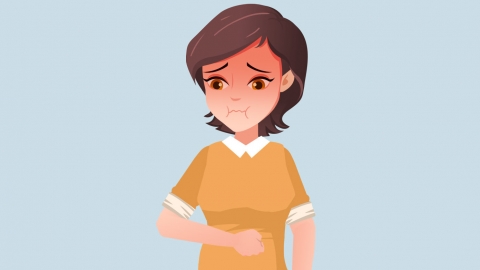What causes nausea after appendicitis surgery, and what should be done?
In general, nausea after appendectomy may be caused by reactions to anesthetic drugs, incomplete recovery of gastrointestinal function, postoperative intra-abdominal fluid accumulation, postoperative intestinal adhesions, or postoperative infection. It is recommended to seek medical attention promptly, identify the underlying cause, and then improve symptoms under a doctor's guidance through general management, medication, and other approaches. Specific causes are analyzed as follows:

1. Anesthetic drug reaction: Anesthetic agents used during surgery may irritate the gastrointestinal tract, causing nausea shortly after surgery, often accompanied by mild vomiting sensation. Patients should lie flat without a pillow for 6 hours post-surgery to allow metabolism of the anesthetic. If nausea is significant, fasting temporarily is advised; once symptoms subside, gradually resume diet starting with liquid foods such as rice soup or lotus root powder.
2. Postoperative gastrointestinal dysfunction: Surgical procedures can affect gastrointestinal motility. When gastrointestinal function has not fully recovered, food retention may lead to nausea, often accompanied by abdominal distension. Patients may benefit from turning in bed or slowly walking to promote gastrointestinal motility.
3. Intra-abdominal fluid accumulation after surgery: Small amounts of exudate from the surgical site may accumulate in the abdominal cavity, irritating the gastrointestinal tract and causing nausea, possibly accompanied by dull abdominal pain. Abdominal ultrasound should be performed as directed by a physician to assess the volume of fluid. Minor fluid collections may resolve spontaneously with rest, while larger accumulations may require percutaneous abdominal drainage to relieve discomfort.
4. Postoperative intestinal adhesions: Surgical trauma may cause the intestines to adhere to surrounding tissues, impairing the passage of intestinal contents and leading to nausea, along with abdominal pain and reduced flatus. As directed by a physician, medications such as lactulose oral solution, polyethylene glycol 4000 powder, or simethicone emulsion may be used to improve bowel patency.
5. Postoperative infection: Infection at the surgical wound or within the abdominal cavity can trigger inflammation that irritates the gastrointestinal tract, resulting in nausea, along with fever, redness, swelling, and pain at the wound site. Patients should follow medical advice to use anti-infective medications such as ceftriaxone sodium injection, metronidazole injection, or levofloxacin injection.
During the postoperative recovery period, maintain a light diet, avoid greasy, spicy, and gas-producing foods such as legumes and sweet potatoes, eat small meals frequently, and reduce gastrointestinal burden. Additionally, maintain regular作息 (sleep-wake cycles), avoid fatigue, promote overall recovery, and minimize postoperative discomfort.




